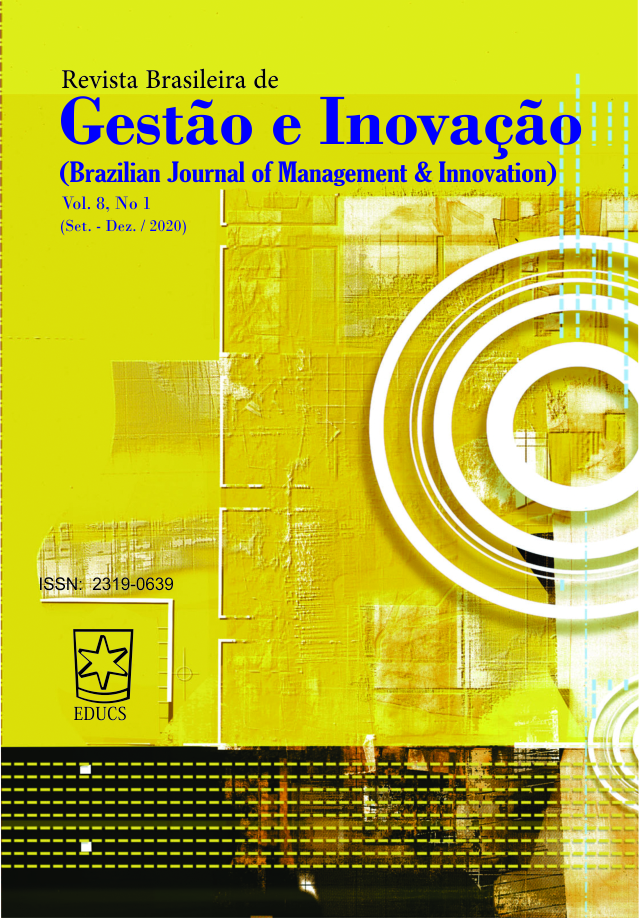FATORES ANTECEDENTES DA INTENÇÃO DE RECOMPRA DA MARCA DE UM SMARTPHONE | FACTORS THAT PRECEDE A SMARTPHONE BRAND REPURCHASE
Keywords:
comportamento de consumo, intenção de recompra, imagem social.Abstract
Verificar os fatores que antecedem a recompra da marca de um smartphone é o objetivo deste artigo. Foi desenvolvido um modelo teórico que colocou a imagem social como elemento influenciador de recompra, assumindo a existência das relações entre design, qualidade percebida, popularidade da marca, norma subjetiva, preço percebido e auto congruência, tanto na intenção de recompra quanto na imagem social. Foi realizada uma pesquisa quantitativa, descritiva, com corte transversal e dados primários. A coleta de dados deu-se por meio de formulários eletrônicos, e atingiu quantidade de 418 respondentes válidos, analisados por meio da Modelagem de Equações Estruturais (MEE). Os resultados mostraram a existência da influência positiva das relações entre design, qualidade percebida, popularidade da marca e auto congruência na intenção de continuar comprando uma marca de smartphone. Em adicional, pôde-se evidenciar a influência positiva do design, norma subjetiva, preço percebido e auto congruência na imagem social dos usuários deste produto. Assim, pôde-se concluir que as experiências satisfatórias dos consumidores com as marcas de smartphone que oferecem popularidade, reconhecimento de autoimagem, qualidade e atrativos estéticos poderão influenciá-los a recomprar este produto. Evidenciou-se, ainda, que smartphones possivelmente representarão reputação social para o usuário por meio da beleza, luxo e congruências normativa e pessoal.
DOI: 10.18226/23190639.v8n1.06
Isabelle Menezes Dovera Ribeiro, Fucape Business School (FUCAPE). Brasil.
E-mail: isabelledovera@hotmail.com
Daniel Modenesi de Andrade*, Fucape Business School (FUCAPE). Brasil.
E-mail: danielmodenesi@fucape.br
Submetido: Agosto 2019
Aceito: Novembro 2019
*Contato para Correspondência
Downloads
Published
How to Cite
Issue
Section
License
The author must guarantee that:
- there is full consensus among all the coauthors in approving the final version of the document and its submission for publication.
- the work is original, and when the work and/or words from other people were used, they were properly acknowledged.
Plagiarism in all of its forms constitutes an unethical publication behavior and is unacceptable. Revista Brasileira de Gestão e Inovação has the right to use software or any other method of plagiarism detection.
All manuscripts submitted to RBGI - Revista Brasileira de Gestão e Inovação go through plagiarism and self-plagiarism identification. Plagiarism identified during the evaluation process will result in the filing of the submission. In case plagiarism is identified in a manuscript published in the journal, the Editor-in-Chief will conduct a preliminary investigation and, if necessary, will make a retraction.
This journal, following the recommendations of the Open Source movement, provides full open access to its content. By doing this, the authors keep all of their rights allowing Revista Brasileira de Gestão e Inovação to publish and make its articles available to the whole community.
RBGI - Revista Brasileira de Gestão e Inovação content is licensed under a Creative Commons Attribution 4.0 International License.
Any user has the right to:
- Share - copy, download, print or redistribute the material in any medium or format, linking to RBGI site.
- Adapt - remix, transform and build upon the material for any purpose, even commercially.
According to the following terms:
- Attribution - You must give appropriate credit, provide a link to the license, and indicate if changes were made. You may do so in any reasonable manner, but not in any way that suggests the licensor endorses you or your use.
- No additional restrictions - You may not apply legal terms or technological measures that legally restrict others from doing anything that the license permits.
#RBGI







